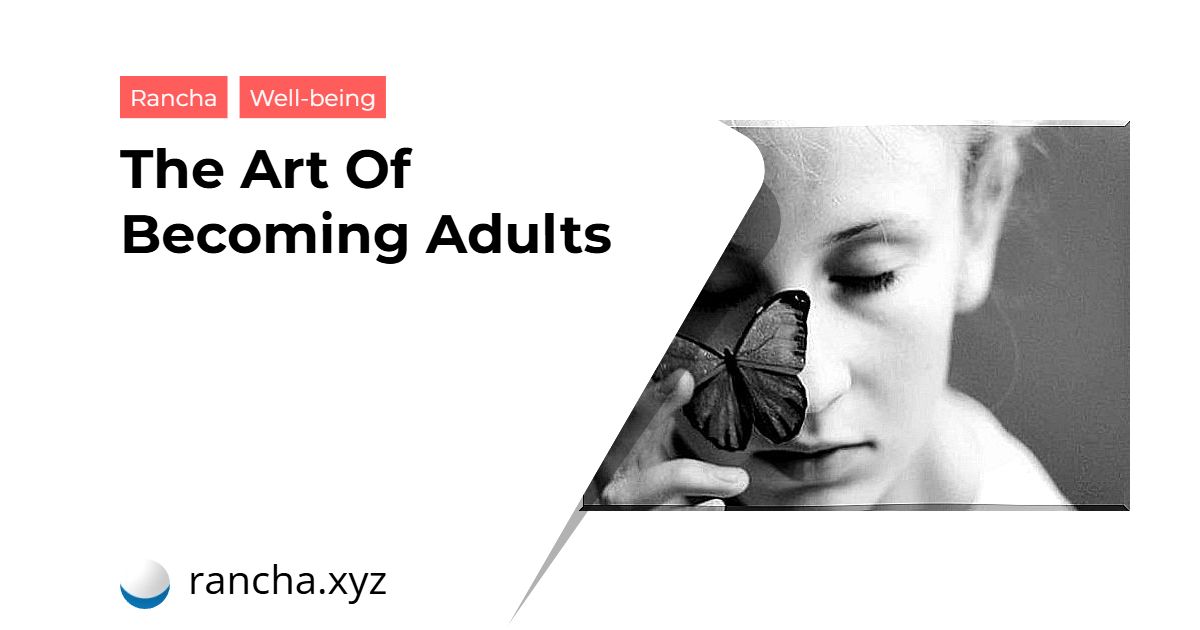The art of becoming adults requires courage, commitment and responsibility to ourselves and others. Becoming a healthy adult is not an easy task, especially considering how the society in which we grew up is set up.
On the other hand, depending on how we live our childhood and the bonds with our parents, we will need more or less efforts to make our way to our physical and emotional maturity. Physiological age and social age do not always coincide, so why this lack of synchrony? Why is it often so difficult to mature?
Why sometimes we don’t want to grow?
Why do some people have such a hard time maturing? We have many reasons to stay in eternal youth (known as “Peter Pan Syndrome”). First of all, society forces us to always be perfect, beautiful and with a youthful spirit.
Second, sometimes the emotional wounds of our childhood make us drag unresolved issues to be resolved, and we consider ourselves children with wounds that prevent us from becoming adults: deep down we continue to claim part of our childhood or try to get out of it without wounds deep. These matters, when unresolved, manifest themselves in our present. Think that in childhood it is easier to evade responsibilities and feel that we are in a familiar and comfortable zone, rather than exploring unfamiliar zones.
What are the characteristics of an adult who doesn’t want to grow up?
There are several characteristics that an adult that resists growth has. The main ones are as follows:
- They have unmet needs in childhood that they constantly try to make up for in their present.
- You feel guilt, hidden or manifested, for the things you do, say, or feel. It’s hard to tell your parents apart from your peers.
- It exaggerates your needs and, in addition, usually converts them into actions, or needs for immediate gratification.
- You need to be constantly filled with stimuli and can be very dependent on others, or very independent (although behind independence there is a need to be recognized and seen).
- Repress your emotions and let them bury themselves within you, or on the contrary, they deal with a roller coaster of emotions they cannot control.
- Expect a lot from others, it can give a lot, but usually expecting something in return.
- It has in its interior the wounds of abandonment and contempt that it lived in its childhood.
Guilt makes it difficult to mature
Imagine a child with his parents in the process of separating. In this situation, it is easy for the child to adopt behaviors to avoid the disruption of the family nucleus and, if he cannot, he assumes part of the responsibility for the separation. A responsibility that, in the face of failure, turns into guilt, into a weight that is not yours and that can end up holding back your development.
The injured child inhabits an adult’s body and is frozen in time. He thinks that it doesn’t matter how old he is, whether it’s 25, 38 or 60 years old. Guilt tends to be very active in the child (dressed as an adult), who has little emotional maturity.
The child feels an insane guilt, which makes him think that he is responsible for everything that happens around him. This burden that the child feels is not real, even though he experiences it as something real. If when we become adults we can’t control our guilt, we’re going to have big problems taking on our everyday responsibilities.
What is the way to reach emotional maturity?
To achieve emotional maturity we will have to face the feeling of guilt instead of avoiding it. Managing guilt is the most important part for us to keep growing in relation to the emotions we hold. Both with us and with others.

To begin to digest this guilt, it is necessary: to live the pain of a child, not to avoid the pain, but to go through it and feel it fully and consciously. When we can leave our history and our backpack behind, guilt turns into healthy responsibility that pushes us toward maturity.
The bravery of being adults
The art of becoming healthy adults is not only important for engaging in different roles in life (professional, couple, children, etc.), but it goes far beyond that. It’s important to acquire our own identity, different from our parents, let go of their expectations and start doing things for ourselves.
If we value and accept ourselves the way we are, the experience of life will naturally lead us to maturity. What gives us wings to be adults is the freedom to live our present with awareness and acceptance of circumstances.
So some secrets to becoming a self-employed adult are: stop behaving like the victim, avoid constantly complaining, and leave the past behind. Only by being brave and stepping into the unknown can we begin to rule our own lives.
 rancha.xyz Be free to choose their own route to self-knowledge, health and balance of body and soul.
rancha.xyz Be free to choose their own route to self-knowledge, health and balance of body and soul.




